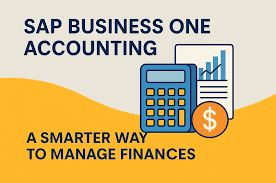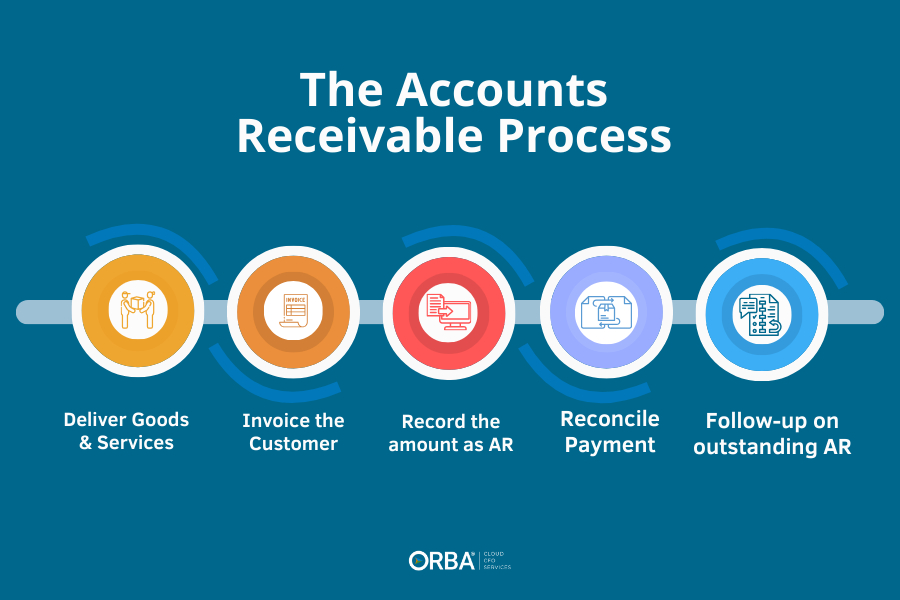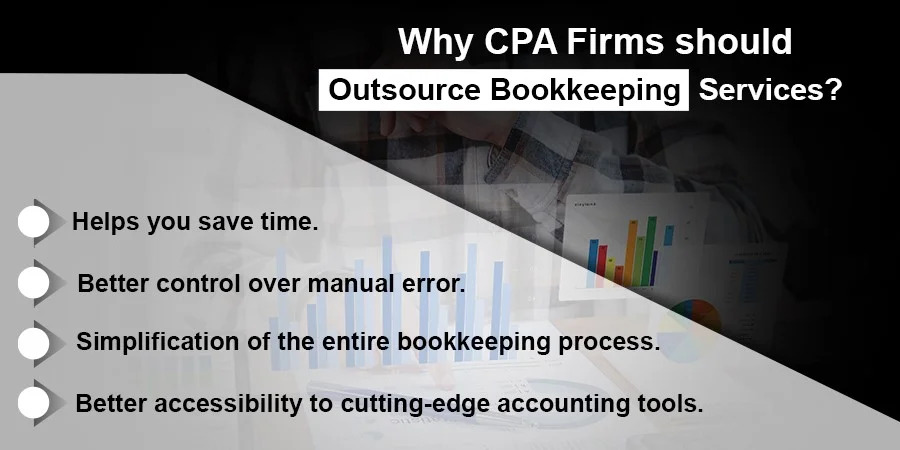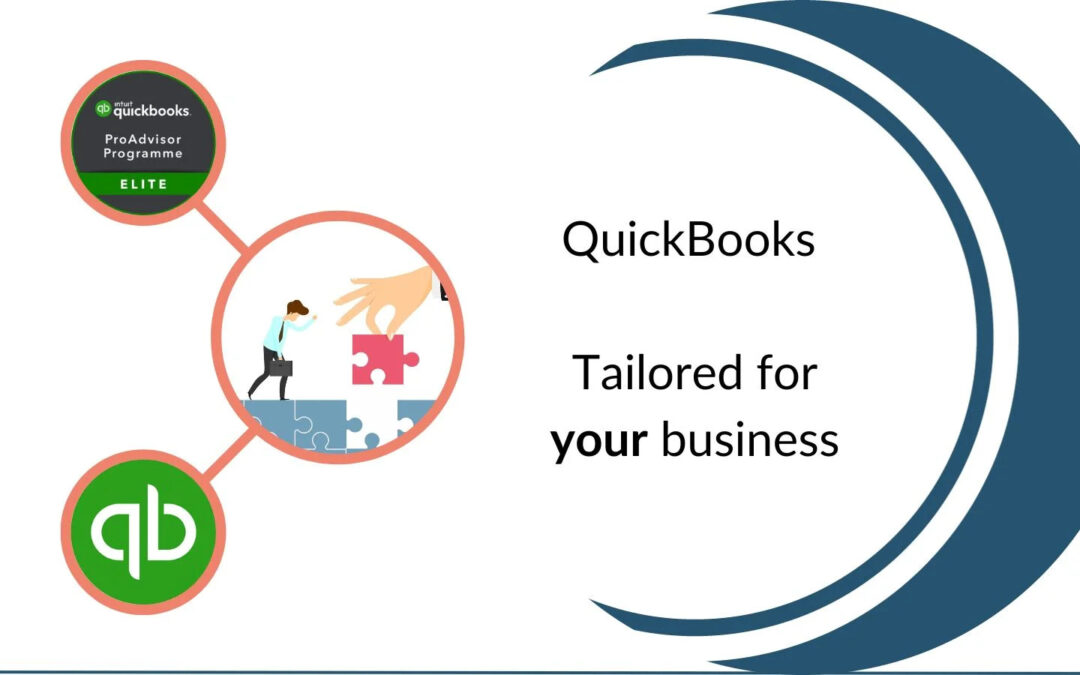
by kmkventures | Oct 8, 2025 | Others
In today’s complex business environment, managing accounting and bookkeeping efficiently is critical for success. Companies of all sizes rely on advanced software solutions to streamline financial operations, maintain accuracy, and comply with regulations. One of the leading enterprise resource planning (ERP) platforms, SAP, offers powerful accounting and bookkeeping services that can transform how your business handles its finances.
If you’re wondering what SAP accounting and bookkeeping services are, how they work, and why your business might need them, this complete guide will cover everything you need to know.
What Is SAP?
SAP, which stands for Systems, Applications, and Products in Data Processing, is a global leader in ERP software. Founded in 1972, SAP has developed comprehensive solutions to help businesses manage key operations, including finance, supply chain, human resources, and customer relations, all in one integrated platform.
SAP’s financial modules, especially SAP Financial Accounting (FI) and SAP Controlling (CO), provide the backbone for accounting and bookkeeping services within the system.
Understanding SAP Accounting & Bookkeeping Services
SAP accounting and bookkeeping services refer to the use of SAP’s financial modules to record, process, and manage all financial transactions of a business. These services ensure that financial data is accurate, compliant, and readily available for reporting and decision-making.
Here’s a breakdown of key components:
1. Financial Accounting (FI)
The SAP FI module handles core accounting functions such as:
-
General ledger accounting
-
Accounts payable and receivable
-
Asset accounting
-
Bank accounting
-
Financial closing and reporting
This module records all business transactions that affect the company’s financial status, making it easier to produce compliant financial statements and reports.
2. Controlling (CO)
The Controlling module complements FI by focusing on internal cost tracking and management, helping businesses with:
This ensures a business can control costs, analyze profitability, and make strategic decisions.
3. Integration with Other SAP Modules
SAP’s financial modules integrate seamlessly with other modules like Sales & Distribution (SD), Materials Management (MM), and Human Capital Management (HCM), allowing real-time data flow and reducing errors in financial records.
Key Features of SAP Accounting & Bookkeeping Services
When you leverage SAP for accounting and bookkeeping, you gain access to several powerful features that enhance efficiency and accuracy:
Automated Transaction Processing
SAP automates the recording of invoices, payments, receipts, and journal entries, reducing manual data entry and the risk of human error.
Real-Time Financial Reporting
SAP generates instant financial reports, allowing businesses to monitor cash flow, profitability, and financial health anytime.
Multi-Currency and Multi-Language Support
For global companies, SAP supports multiple currencies and languages, enabling consolidated financial reporting across borders.
Compliance and Audit Readiness
SAP maintains detailed audit trails and adheres to international accounting standards (GAAP, IFRS), helping businesses stay compliant and ready for audits.
Scalability and Customization
SAP solutions are scalable to fit small businesses to large enterprises and can be customized to meet specific industry or organizational needs.
Benefits of Using SAP for Accounting & Bookkeeping
1. Improved Accuracy and Transparency
By automating data capture and integrating financial information, SAP minimizes errors and provides clear visibility into financial operations.
2. Enhanced Efficiency
Automation speeds up processes like invoicing and payment reconciliation, freeing up your finance team to focus on strategic tasks.
3. Better Decision Making
With real-time data and comprehensive reporting, business leaders can make informed financial decisions quickly.
4. Regulatory Compliance
SAP helps businesses comply with local and international financial regulations, reducing risk of penalties.
5. Cost Savings
By reducing manual labor and errors, SAP accounting services lower operational costs over time.
Who Should Use SAP Accounting & Bookkeeping Services?
While SAP was originally designed for large enterprises, today it offers flexible solutions suitable for:
-
Small and Medium-sized Businesses (SMBs) looking to grow and scale their financial operations.
-
Multinational corporations that need consolidated reporting across countries.
-
Industry-specific companies such as manufacturing, retail, and healthcare, benefiting from SAP’s customization capabilities.
-
Businesses seeking integration of finance with other departments like supply chain and HR.
How to Implement SAP Accounting & Bookkeeping Services
Step 1: Assess Your Business Needs
Understand your current financial processes, challenges, and goals to determine which SAP modules and features fit best.
Step 2: Choose the Right SAP Solution
SAP offers various products such as SAP S/4HANA, SAP Business One, and SAP Business ByDesign designed for different business sizes and industries.
Step 3: Plan the Implementation
Create a detailed roadmap including timelines, budgets, and resource allocation. Consider working with certified SAP consultants or partners.
Step 4: Data Migration and Integration
Transfer your existing financial data into SAP and integrate it with other business systems.
Step 5: Train Your Team
Provide comprehensive training to ensure your finance team can use SAP effectively.
Step 6: Monitor and Optimize
After going live, continually monitor performance and optimize processes to get the most from your SAP investment.
Challenges to Consider
Implementing SAP accounting and bookkeeping services can be complex and costly, especially for smaller businesses. Common challenges include:
-
Initial setup and customization time
-
Training requirements
-
Ongoing maintenance and updates
-
Need for technical expertise
However, these challenges are often outweighed by the long-term benefits of improved financial management.
Conclusion
SAP accounting and bookkeeping services offer businesses a robust and integrated approach to managing their financial data. By automating processes, ensuring compliance, and providing real-time insights, SAP empowers companies to make better financial decisions and accelerate growth.
Whether you’re a small business aiming to scale or a large enterprise seeking efficiency, understanding and leveraging SAP’s accounting capabilities can transform your financial operations.
If you’re considering SAP for your business, it’s essential to evaluate your specific needs, choose the right solution, and partner with experienced professionals to maximize your investment.

by kmkventures | Sep 8, 2025 | Online Services
In today’s fast-paced and margin-sensitive business environment, CFOs are under growing pressure to deliver more with less. Whether it’s improving cash flow, maintaining financial transparency, or supporting aggressive growth strategies, finance leaders are expected to do it all—efficiently and at scale.
This pressure is driving a significant trend in finance transformation: more CFOs are choosing to outsource accounts receivable on NetSuite to streamline operations, reduce overhead, and improve results.
NetSuite, one of the most powerful cloud-based ERP systems, is already a favorite among mid-sized and enterprise-level businesses. But when combined with outsourced AR services, its full potential is unleashed—bringing automation, insight, and cash flow efficiency to the forefront of your finance strategy.
Let’s explore why CFOs are making this strategic move and how it’s paying off.
Why Accounts Receivable Is a Strategic Priority
Accounts receivable (AR) is often seen as a back-office function, but it has a direct impact on:
Despite its importance, AR is typically plagued by manual workflows, staffing challenges, and inconsistent follow-ups. In a growing company, these inefficiencies can lead to rising Days Sales Outstanding (DSO), delayed payments, and unpredictable cash flow.
Enter NetSuite—with its powerful automation tools, built-in dashboards, and integrated financial reporting. But while NetSuite provides the digital foundation, it still requires people and processes to make AR truly effective.
That’s why CFOs are now choosing to outsource accounts receivable on NetSuite—combining ERP capabilities with skilled external teams who specialize in collections, invoicing, and customer communication.
What Does It Mean to Outsource Accounts Receivable on NetSuite?
To outsource accounts receivable on NetSuite means partnering with a third-party provider who manages your AR function end-to-end, directly within or integrated with your NetSuite environment. Their responsibilities typically include:
-
Generating and sending invoices through NetSuite
-
Monitoring aging reports and following up on overdue accounts
-
Applying payments and resolving disputes
-
Communicating with customers professionally
-
Reporting on cash flow and collection performance
-
Ensuring AR compliance and audit readiness
These providers use your existing NetSuite system—meaning you retain full visibility and control, while offloading the manual, time-consuming aspects of AR.
Why CFOs Are Outsourcing AR in NetSuite: Key Drivers
1. Faster Collections and Improved Cash Flow
Cash is king, especially in uncertain economic times. AR outsourcing teams bring discipline and consistency to your collection process. When combined with NetSuite automation, they help reduce DSO and accelerate cash inflows.
CFOs appreciate how this directly supports strategic goals such as expansion, hiring, or capital investment.
💡 Companies that outsource AR on NetSuite have reported up to a 30% improvement in cash flow within the first six months.
2. Reduced Operational Costs
Building and maintaining a skilled AR team is expensive. Salaries, benefits, training, and technology add up quickly—especially in competitive markets.
When you outsource accounts receivable on NetSuite, you access trained professionals at a fraction of the cost, with no HR burden. Plus, your outsourced team scales with you—without the overhead of recruiting or restructuring.
3. Better Use of NetSuite’s Capabilities
Many companies underutilize their NetSuite instance—especially when it comes to AR automation. An experienced outsourcing partner knows how to get the most from NetSuite’s built-in tools, including:
-
Automated billing schedules
-
Payment reminders and alerts
-
Real-time dashboards and KPIs
-
Multi-entity and multi-currency support
-
Workflow and approval automation
With the right partner, your NetSuite system becomes a centralized AR command center—streamlined, accurate, and insight-driven.
4. Improved Reporting and Forecasting
Outsourced AR teams bring financial discipline and real-time data into your receivables process. They create consistent reporting, accurate reconciliation, and clean audit trails—all within your NetSuite dashboards.
This gives CFOs better visibility into:
These insights drive smarter decision-making and more accurate forecasts—key components of any strategic finance role.
5. Focus on Strategic Finance, Not Collections
CFOs are expected to play a more strategic role—partnering with the CEO, supporting investor relations, and driving digital transformation.
But too often, finance leaders get pulled into operational issues like late payments or invoice disputes. By outsourcing AR in NetSuite, CFOs and their teams can reclaim valuable time to focus on business growth and long-term planning.
6. Enhanced Customer Experience
AR isn’t just about getting paid—it’s about maintaining healthy relationships. A professional outsourced AR team handles collections with courtesy, empathy, and consistency.
With clear communication, timely invoicing, and easy payment options, customers are less likely to delay payments or escalate disputes. This protects your brand reputation while improving retention.
Real-World Example
Imagine a mid-sized tech company using NetSuite. The business has grown rapidly, but the finance team is overwhelmed. Invoices go out late, customers don’t respond to reminders, and collections are inconsistent.
After choosing to outsource accounts receivable on NetSuite, the company sees immediate results:
-
Invoices are automatically generated and sent within NetSuite
-
Follow-ups are consistent and professional
-
DSO drops from 60 to 38 days in 4 months
-
Finance team shifts focus to cash forecasting and investor reporting
-
Customers appreciate the improved billing communication
This is a perfect example of how AR outsourcing isn’t just about cutting costs—it’s about unlocking strategic value.
How to Choose the Right AR Outsourcing Partner for NetSuite
Not all AR outsourcing firms are built the same. Here’s what CFOs should look for:
-
Proven experience with NetSuite integration
-
Familiarity with your industry’s billing complexities
-
Strong data security and compliance practices
-
Transparent communication and SLAs
-
Customizable workflows and scalable support
-
Real-time access to reports and KPIs within NetSuite
Make sure your partner can function as an extension of your team, not just a vendor.
Final Thoughts
For modern CFOs, efficiency, agility, and strategic thinking are non-negotiable. By choosing to outsource accounts receivable on NetSuite, finance leaders are eliminating operational friction, improving collections, and building more resilient finance departments.
It’s not just about reducing workload—it’s about elevating the role of finance within the organization.
If you’re a CFO looking to optimize cash flow, improve reporting, and unlock the full potential of NetSuite, AR outsourcing might just be the most strategic move you make this year.

by kmkventures | Aug 28, 2025 | Online Services
When businesses look to optimize operations and reduce expenses, one of the first areas they often examine is bookkeeping. Accurate financial tracking is essential, but hiring full-time, in-house bookkeepers can be costly—especially for small or mid-sized businesses. Outsourcing has become an increasingly attractive alternative. But is outsourced bookkeeping really cheaper than hiring in-house? Let’s break down the numbers, the pros and cons, and the real cost of outsourced bookkeeping.
What Is Outsourced Bookkeeping?
Outsourced bookkeeping refers to hiring a third-party service provider—often a specialized firm or freelancer—to handle your financial records, reconciliation, payroll, accounts payable and receivable, and other bookkeeping tasks remotely. These services can be customized depending on the needs of the business, ranging from basic transaction recording to full-service financial management.
Direct Costs: In-House vs. Outsourced
In-House Bookkeeping Costs
Hiring an in-house bookkeeper comes with a wide range of direct costs:
-
Salary: According to data from the U.S. Bureau of Labor Statistics, the average salary for a full-time bookkeeper ranges from $40,000 to $60,000 per year, depending on experience and location.
-
Benefits: Health insurance, paid time off, retirement contributions, and other benefits can add 20–30% to the base salary.
-
Office Space and Equipment: Desk space, computer equipment, software licenses, and other overhead costs add further expenses.
-
Training and Turnover: Training a new employee takes time and money, and turnover adds costs if you need to rehire and retrain frequently.
Estimated Annual Cost for In-House Bookkeeping: $55,000–$85,000+
Outsourced Bookkeeping Costs
The cost of outsourced bookkeeping varies depending on the scope of services and complexity of your finances. Pricing models include hourly rates, monthly retainers, or project-based fees. Here’s a general breakdown:
-
Basic Bookkeeping Services: For small businesses with straightforward needs, outsourced bookkeeping can cost between $200 to $500 per month.
-
Full-Service Bookkeeping: More complex businesses requiring payroll, invoicing, tax prep, and ongoing reporting may pay between $1,000 to $3,000 per month.
Estimated Annual Cost of Outsourced Bookkeeping: $2,400–$36,000
Clearly, outsourcing can offer substantial cost savings, especially for businesses that don’t need a full-time bookkeeper.
Hidden Costs and Benefits
In-House Bookkeeping
While having an in-house bookkeeper may offer more control and immediate access to financial data, there are hidden costs:
-
Downtime: If your bookkeeper is sick or takes time off, you may experience gaps in your financial processes.
-
Human Error: A single person handling all financial data increases the risk of mistakes or fraud if internal controls are weak.
-
Limited Expertise: One person may not have the breadth of knowledge to manage complex financial issues or stay updated on tax laws and software.
Outsourced Bookkeeping
Outsourcing often gives you access to an entire team with diverse experience. Many providers include:
-
Scalability: As your business grows, you can easily scale bookkeeping services without hiring new staff.
-
Technology and Automation: Outsourced firms typically use the latest bookkeeping software and cloud platforms, reducing the time and errors involved in manual entry.
-
Compliance and Expertise: Professional firms are well-versed in tax codes, financial reporting standards, and compliance issues.
However, the drawbacks of outsourced bookkeeping include:
-
Less Immediate Access: Communication might not be as instant as walking into your bookkeeper’s office.
-
Data Security: You’ll need to ensure that your provider has strong security protocols for handling sensitive financial data.
Time is Money: Efficiency and Productivity
One often-overlooked factor in comparing in-house vs. outsourced bookkeeping is productivity. In-house employees might split their time between multiple tasks or work inefficiently due to limited tools or outdated systems. Meanwhile, outsourced bookkeepers are typically more specialized, working faster with better accuracy.
This increased efficiency can translate into time savings for you and your team, allowing your business to focus on growth rather than administrative tasks. When you consider the cost of outsourced bookkeeping alongside these productivity gains, the value becomes clearer.
When Outsourcing Makes the Most Sense
While outsourcing isn’t ideal for every business, it tends to be more cost-effective in the following scenarios:
-
Startups and Small Businesses: These companies often can’t justify the expense of a full-time bookkeeper but still need accurate records.
-
Seasonal Businesses: Outsourcing allows for flexibility, so you only pay for services when you need them.
-
Rapidly Growing Companies: You can scale services without undergoing costly hiring and training cycles.
-
Businesses Lacking Financial Expertise: Access to experienced professionals without hiring a CFO or senior accountant.
When In-House May Be Better
Despite the cost advantages of outsourcing, there are times when an in-house bookkeeper may be the better option:
-
Large Enterprises: Companies with complex finances, internal audits, and frequent financial decision-making may need in-house teams.
-
High Security Requirements: If your business handles highly sensitive financial or customer data, you may prefer to keep financial records in-house for tighter control.
Conclusion: Is It Really Cheaper?
In most cases—especially for small and medium-sized businesses—the cost of outsourced bookkeeping is significantly lower than hiring an in-house bookkeeper. When you factor in not only direct salary and benefits but also training, software, space, and opportunity costs, outsourcing emerges as the more cost-efficient option.
However, the decision shouldn’t be based on cost alone. Consider your specific needs, the complexity of your finances, and the value of expertise, flexibility, and scalability. For many businesses, outsourced bookkeeping offers not just savings but also strategic advantages that support long-term growth.

by kmkventures | Aug 22, 2025 | Others
If you’re a business owner juggling daily operations, customer service, marketing, and growth strategies, bookkeeping is likely the last thing you want to worry about. Yet, managing your finances properly is essential. That’s where outsourcing QuickBooks bookkeeping becomes a game-changer.
In this ultimate guide, we’ll explore everything you need to know about outsourcing your QuickBooks bookkeeping in 2025 — from what it means, why it’s beneficial, how it works, and how to choose the right provider.
What Is QuickBooks Bookkeeping?
QuickBooks is one of the most popular accounting software platforms for small to medium-sized businesses. It helps manage income, expenses, payroll, invoicing, reporting, taxes, and more.
QuickBooks bookkeeping refers to the daily, weekly, or monthly tasks of recording and organizing financial data within the QuickBooks platform. This includes:
-
Reconciling bank statements
-
Tracking income and expenses
-
Managing accounts receivable and payable
-
Generating financial reports
-
Preparing for tax filing
What Does It Mean to Outsource QuickBooks Bookkeeping?
To outsource QuickBooks bookkeeping means hiring an external professional or firm to manage your company’s books using QuickBooks — instead of handling it in-house.
These outsourced services may be provided by:
Outsourced bookkeepers work remotely using cloud-based access to your QuickBooks account, offering real-time financial management without being physically present in your office.
Why Outsource QuickBooks Bookkeeping in 2025?
With the evolution of cloud accounting and remote work, more businesses than ever are turning to outsourced bookkeeping. Here’s why:
1. Save Time and Focus on Growth
Bookkeeping is time-consuming. Outsourcing it frees you up to focus on strategic areas like sales, customer relationships, and product development.
2. Cost-Effective
Hiring a full-time bookkeeper comes with salary, benefits, and overhead. Outsourcing lets you pay only for the services you need — whether it’s a few hours a week or full-time support.
3. Access to Experts
Outsourced QuickBooks professionals often have specialized training and certifications (like QuickBooks ProAdvisor status), ensuring your books are accurate, up-to-date, and compliant.
4. Scalability
As your business grows, so do your financial needs. An outsourced provider can scale services accordingly — without requiring a hiring process.
5. Reduced Errors and Risk
Professionals reduce the risk of common errors like misclassified transactions, missed deductions, or late tax payments. This can save you money and avoid penalties.
How to Outsource QuickBooks Bookkeeping: Step-by-Step
If you’re ready to outsource QuickBooks bookkeeping, here’s how to do it right:
Step 1: Assess Your Needs
-
Do you need weekly or monthly bookkeeping?
-
Are you using QuickBooks Online or Desktop?
-
Do you need payroll or tax services too?
Understanding your needs will help you find the right fit.
Step 2: Choose the Right Provider
Look for providers who:
-
Specialize in QuickBooks
-
Have positive client reviews
-
Are QuickBooks Certified ProAdvisors
-
Offer services within your budget and time zone
Step 3: Set Up Access
Grant secure access to your QuickBooks account via cloud sharing or user permissions. Use platforms like QuickBooks Online for real-time collaboration.
Step 4: Establish Communication
Determine how often you’ll communicate (weekly reports, monthly calls, etc.) and how — email, phone, Slack, etc.
Step 5: Monitor and Adjust
Review your reports regularly and give feedback. If something isn’t working, address it early.
What to Look for in an Outsourced QuickBooks Bookkeeper
When choosing a bookkeeping provider, here are the top things to look for:
-
QuickBooks Certification – Ensure they are trained in the latest version.
-
Industry Experience – Bookkeepers familiar with your industry will understand your specific needs.
-
Transparent Pricing – Avoid hidden fees. Know what you’re paying for.
-
Security Practices – Your financial data must be protected with secure logins, encryption, and data backups.
-
Responsiveness – Choose someone who responds promptly and communicates clearly.
Common Myths About Outsourcing Bookkeeping
❌ Myth 1: Only big companies outsource bookkeeping.
➡️ Fact: Startups and solopreneurs often benefit the most from outsourcing, especially when budgets are tight.
❌ Myth 2: Outsourcing means losing control.
➡️ Fact: You maintain full control and visibility. A good bookkeeper works with you, not instead of you.
❌ Myth 3: Outsourced bookkeepers aren’t reliable.
➡️ Fact: With proper vetting, outsourced bookkeepers can be even more reliable than in-house staff.
Costs of Outsourcing QuickBooks Bookkeeping
Costs vary based on:
Average costs in 2025:
-
Freelancers: $300–$800/month
-
Bookkeeping firms: $500–$2,000/month
-
Custom packages (with CFO services): $2,000+/month
Is Outsourcing QuickBooks Bookkeeping Right for You?
Here are signs it might be time to outsource:
✅ You’re spending too much time on bookkeeping
✅ Your books are always behind or inaccurate
✅ You’re growing and need financial clarity
✅ You want expert help without the cost of a full-time hire
✅ You need better financial reports for decision-making
If any of these apply, it may be time to look for a trusted bookkeeping partner.
Final Thoughts
In 2025, the tools and talent available for outsourced bookkeeping have never been better. QuickBooks makes it easy to collaborate with virtual professionals, giving you peace of mind and more time to run your business.
When you outsource QuickBooks bookkeeping, you’re not just hiring a bookkeeper — you’re investing in your business’s financial clarity and future growth.

by kmkventures | Aug 7, 2025 | Others
For many small business owners, the idea of outsourcing bookkeeping for small business can feel unnecessary — even risky. After all, if you’re running a lean operation, why not just manage the books yourself? It’s just numbers, right?
But as your business grows, so does the complexity of your finances. And that’s where the real value of outsourcing becomes clear — especially when it’s human help on the other end, not just software or AI tools.
In this post, we’ll explore why outsourcing bookkeeping for small business is not only practical — it’s one of the smartest moves you can make. We’ll also look at why real human bookkeepers offer value you simply can’t get from do-it-yourself tools or automated platforms.
The DIY Bookkeeping Struggle
If you’re like most small business owners, you didn’t start your business to become a bookkeeper. But somewhere along the way, you found yourself buried in spreadsheets, receipts, and bank statements. That “I’ll just do it myself” mindset can be useful at first — but over time, DIY bookkeeping becomes a time-consuming, stressful task that pulls you away from what matters most.
Let’s face it: bookkeeping is more than just tracking expenses. It involves:
- Reconciling bank accounts
- Managing payroll
- Categorizing income and expenses correctly
- Staying compliant with tax rules
- Preparing financial statements
- Tracking cash flow
Doing all of this accurately and consistently takes time and expertise. That’s why outsourcing bookkeeping for small business is not a luxury — it’s a necessity for long-term stability and growth.
Why Human Help Beats DIY (and Software)
You’ve probably heard about bookkeeping software that promises to “automate everything.” While these tools can be helpful, they’re not a full solution. Software can’t interpret complex financial scenarios, provide advice, or catch small but costly mistakes.
Here’s why human bookkeeping support beats DIY or software every time:
1. Personalized Attention
When you’re outsourcing bookkeeping for small business to a real person, you’re getting someone who learns how your business works. They’ll know your cash flow patterns, seasonal trends, and unique expenses — things no software can fully understand.
A human bookkeeper doesn’t just plug in numbers. They analyze, flag issues, and provide insights tailored to your business goals.
2. Fewer Errors, Fewer Headaches
Even with modern apps, bookkeeping errors happen all the time — especially when business owners are trying to manage it all themselves. Misclassified expenses, duplicate entries, or missed invoices can lead to financial confusion and tax-time stress.
A professional bookkeeper ensures your records are clean, accurate, and compliant. That means less stress for you and more confidence in your numbers.
3. Proactive Financial Advice
Good bookkeepers don’t just record data — they help you understand it. They can alert you to budget issues, cash flow concerns, or areas where you’re overspending. They also collaborate with your accountant or tax preparer to ensure your business stays on track.
When you’re outsourcing bookkeeping for small business to a professional, you’re gaining a financial partner — not just a number cruncher.
4. You Save Time (and Time Is Money)
Bookkeeping can eat up hours each week. Hours you could spend serving clients, refining your product, or growing your team. Time is one of your most valuable assets — and outsourcing gives you more of it.
Freeing yourself from financial admin lets you focus on the parts of your business that only you can do.
The Hidden Costs of DIY Bookkeeping
Many small business owners assume that doing the books themselves will save money. But the true cost of DIY often includes:
- Time lost on low-value tasks
- Stress from trying to “figure it out”
- Missed tax deductions
- Penalties from filing mistakes
- Paying an accountant to clean up errors
When you factor in these risks, outsourcing bookkeeping for small business is often more cost-effective than trying to go it alone.
How to Choose the Right Bookkeeping Partner
If you’re ready to outsource, the next step is finding the right person or firm. Here’s what to look for when outsourcing bookkeeping for small business:
- ✅ Experience working with small businesses in your industry
- ✅ Clear communication and responsiveness
- ✅ Transparent pricing — no hidden fees
- ✅ A relationship-focused approach
- ✅ Willingness to explain reports and answer questions
You don’t need a huge accounting firm. You need someone reliable, approachable, and invested in your success.
Real Stories, Real Impact
Many small business owners who switch from DIY to outsourcing say it’s one of the best decisions they’ve made. They report:
- Lower stress
- More confidence in their financials
- Better decision-making
- Fewer surprises at tax time
- More time to work on the business, not just in it
Whether you’re a solopreneur, a startup founder, or running a local service business, outsourcing your books to a trusted expert pays off — in peace of mind and in real financial results.
Final Thoughts: Take Back Your Time and Clarity
If you’ve been juggling receipts, second-guessing your numbers, or dreading tax time — you’re not alone. Thousands of small business owners are in the same position. But you don’t have to stay there.
Outsourcing bookkeeping for small business is about more than just handing off a task — it’s about gaining back your time, improving accuracy, and building a financial foundation that supports your growth.
And most importantly, it’s about knowing there’s a real person — someone who understands your business — making sure your numbers are right.
So stop trying to do it all yourself. Let a professional handle the books, so you can get back to building the business you love.





